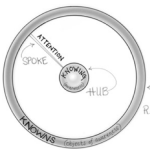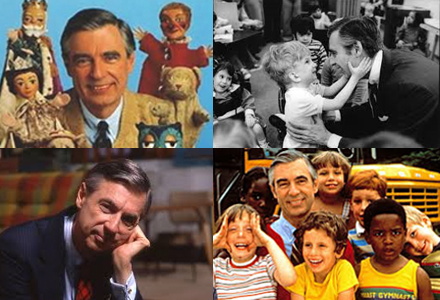In 1969, Fred Rogers, the creator and host of Mr. Rogers’ Neighborhood, spoke at a United States Senate hearing in support of public television and successfully convinced the committee of the value for the much-needed funding for children’s educational television. In that presentation, Mr. Rogers stated that emotions can be “mentionable and manageable,” and demonstrated a deep compassion for youth and the journey for each of us as we grow toward adulthood with each other’s support.
A few years ago, a recording of that same segment of the US Senate meeting was played just before I stepped up to the stage for a TEDx talk in Southern California. In that talk, with the assistance of a thirteen-year-old in the audience, I tried to explore the likely mechanisms in the brain for how we develop that capacity to mention emotions and then be able to manage them in our lives. You can watch how children and adolescents can be taught about the brain and how what we do by taking “time-in” to reflect on our inner life and sharing these in our relationships can help build the linkages among different areas of the brain—make the brain more integrated—as we cultivate more resilience.
These new three R’s of reflection, relationships and resilience are built on a simple but profound realization: How we integrate both within us—in our brains and in our reflections—and between us—in our kind and compassionate relationships with one another and with Earth—help build resilience, inside and out. At our Mindsight Institute, we say that “integration made visible is kindness and compassion.” We can only imagine how Mr. Rogers’ brain had these important integrative networks enabling him to be the inspiration for so many to bring more kindness and compassion into our world.
Just before Fred Rogers passed away, he and his team had reached out to me at the Mindsight Institute to see if there was a way of combining our work on human development with his empowering yet simple message of how we can care for one another to create a more compassionate world. Sadly, his passing meant we were never to meet in person—I’d only be able to know him from the small television screen in our home where he’d fill our den with his kind words of wisdom and show us the pace of life that built those important three R’s. Years later when they played that tape of the US Senate, that moment of convergence—seeing the recording of Fred Rogers, sensing the importance of cultivating compassion in our world, supporting the development of resilience in the lives of our youth—was a coming together that feels even more relevant today as we face deepening challenges in our personal, public, and planetary well-being.
I so wish Fred Rogers were with us now to help lend support as we work together to help cultivate more connection and compassion in our world.
I look forward to seeing his likeness, played by what we are now hearing may be his sixth cousin, Tom Hanks, in the new film, A Beautiful Day in the Neighborhood. In a recent exclusive interview of Hanks for Maria Shriver’s Sunday Paper, the experience of portraying this inspiring icon of kindness for the big screen is beautifully revealed, touching on the power of narratives to bring back to our minds the central role of emotion and meaning in our lives. To some degree, we are all cousins in our human family, even siblings of Earth on this wondrous journey of life. Though the derivations of the word “kin” and the noun “kind” are distinct from that of “kindness”, we can wonder if in our everyday use of these terms, being kind is all about recognizing that we may each be distinct yet deeply linked. Realizing that integration of our fundamental kinship and acting with kindness as we honor our differences may truly be integration made visible. Being kind ultimately means we are of the same kind, sharing a kinship with all living beings on this precious planet we call home.
Let’s find a way to help one another make our feelings mentionable as we share them kindly with each other, and manageable as we learn to not only regulate them to keep from flooding us or shutting us down, but to thrive in the fullness of our feelings as we embrace the integrative breadth of what it means to be human.
Together, let’s enjoy and make this a beautiful day in our global neighborhood!



